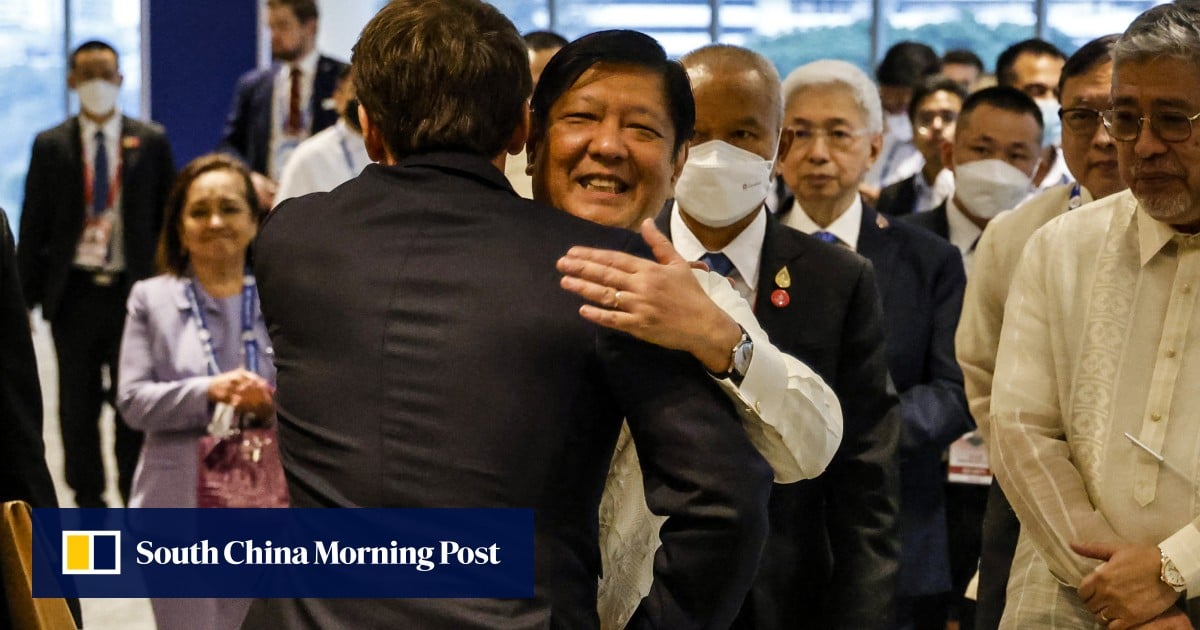Analysts say it’s crucial for the Philippines to strengthen security cooperation with like-minded countries, not only for bolstering its claims in the South China Sea but also for its ongoing military modernisation efforts amid a shift in focus of its defence strategy from internal to external.
Earlier this year, the Philippine armed forces adopted a new strategy called the “Comprehensive Archipelagic Defence Concept” that defence chief Gilbert Teodoro Jnr said was designed “to protect and secure our entire territory and exclusive economic zone” and ensure “all the generations of Filipinos to come shall freely reap and enjoy the bounties of the natural resources that are rightfully ours”.
“For so many years, we haven’t had a stand-off capability,” said Sherwin Ona, an associate professor of political science and development at De La Salle University who has written extensively on national defence and information warfare. “It’s the first time in Philippine history that we’re able to acquire such a weapon … but of course, three batteries are not enough.”

France has been lobbying the Philippines to buy at least three of its Scorpene-class submarines, with Ona calling the French offer “the most interesting” as it includes technical support and help building up operational expertise.
Multilateral partnerships are advantageous for the Philippines as it strengthens diplomatic ties. Its reputation as a middle power is based on its diplomatic influence and capacity to establish defence networks, said Joshua Espeña from the Manila-based International Development and Security Cooperation think tank.
The Philippines indirectly sends a signal that it is willing to work with anyone who might bring strategic effect to regional security
“The Philippines indirectly sends a signal that it is willing to work with anyone who might bring strategic effect to regional security.”
Dindo Manhit, president of the Manila-based Stratbase ADR Institute think tank, said: “This strengthened deterrence capability is crucial for the Philippines’ objective to secure its sovereignty in the West Philippine Sea, sending a clear signal of its commitment to defend its territorial integrity.”

Foreign policy and security analyst Lucio Pitlo III said the Philippines should leverage its strategic location in the region to drive support for its defence-building capabilities.
“Joint training and exercises with allies and partners like the ongoing Balikatan drills help boost readiness and interoperability to collectively respond to contingencies. But investments in defence and deterrence should go hand in hand with dialogue and diplomacy,” Pitlo said.
V.K. Parada, a defence research analyst with the Philippine navy, said that leveraging alliances was one of the most effective strategies the Philippines could use in offsetting security deficits.
He said the multilateral agreements were oftentimes “more geared towards capability development, interoperability, and facilitating the knowledge exchange between armed forces”, adding: “This is crucial when partner nations like France or Japan also serve as potential suppliers for the defence sector.”

Manila’s middle-power status also opens doors for economic growth, analysts say.
Manhit said Marcos’ administration should continue to strengthen its strategic partnerships and ensure they extend beyond military cooperation into economic collaboration.
Foreign direct investments from sources other than China have allowed the Philippines to build up its defences against economic coercion from Beijing, Ona said.
“Aside from the water cannons, economic coercion is another [threat]. To strengthen the Philippines’ [defences] against that type of grey-zone attack, we must have a resilient economy,” he said.
The Marcos administration had played its cards right in striking diplomatic ties with like-minded countries, Ona said.
“You cannot sustain a robust military without a resilient economy.”

